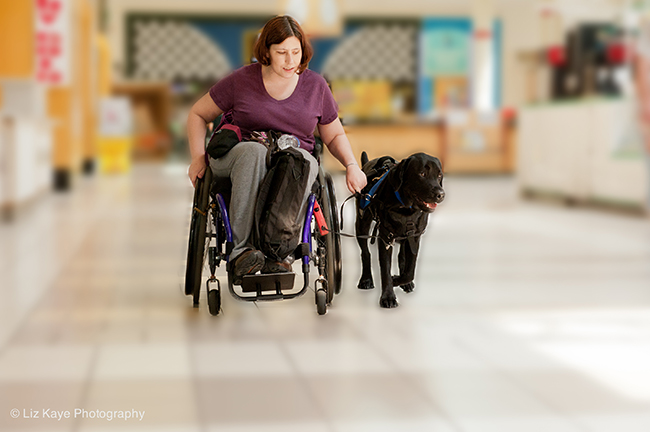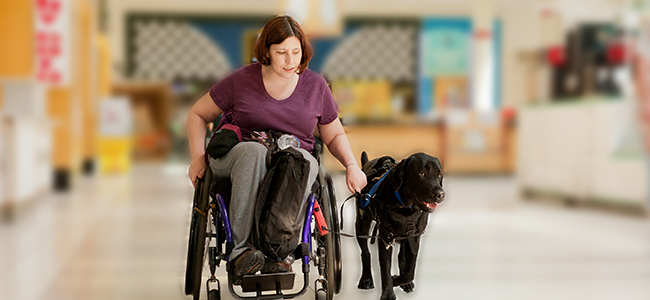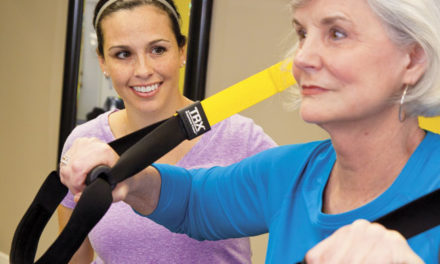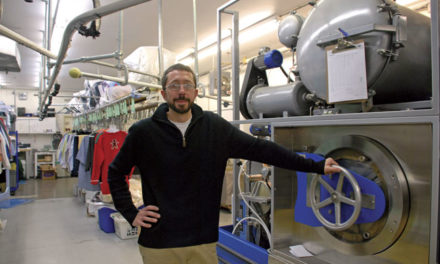
BY BARB BERGGOETZ
Herbie pulls Jenelle Dorner’s wheelchair. She braces herself on the black lab’s back to help her stand. She holds his harness for steadiness on short walks. When she points to an object, he brings it to her.
For four years, Herbie has been the Bloomington woman’s crutch, her support, and her faithful companion. The 6-year-old service dog, provided by the Indiana Canine Assistant Network (ICAN), has made her life inestimably easier and safer. Dorner deals with muscle weakness, fatigue, seizures, and other chronic symptoms caused by mitochondrial disease, a progressive movement disorder.
“He really gives me an independence that I would have no other way of experiencing,” says Dorner, 39, who is married with a 10-year-old son, Leif. “The dogs make it so you don’t have to rely on people anymore.”
Herbie is among canines trained by inmates at Indiana prisons for up to two years through ICAN (icandog.org), an Indianapolis-based, nonprofit service dog training program for people with disabilities. Inmates at Indiana Women’s Prison in Indianapolis and Pendleton Correctional Facility and Correctional Industrial Facility, both in Pendleton, Indiana, are taught to train dogs using positive reinforcement to assist people with diabetes, autism, and limited mobility.
Dogs learn basic commands such as stay, sit, heel, and drop, as well as complex tasks such as opening cabinets, covering clients with blankets, and providing balance assistance. Dogs go on several three-week furloughs into the community with trained volunteers to get them used to being in public. Community volunteers also raise puppies for about 14 weeks before training begins.
Susan and Uldis Augenbergs, owners of Framemakers on West Kirkwood, have taken care of both ICAN puppies and adult dogs since 2014. Most recently they had Emma, an adult golden retriever and lab mix, who accompanied Susan to work, shopping, dinner, anywhere she went.
“We love the little bit we can do to help this organization to get these dogs out to people who need them,” says Susan. “It’s very rewarding. These dogs help so many people.”
For Dorner, Herbie is more than her aide. He helps break the social stigma surrounding disability, she says, as people will more likely discuss her condition when they see her dog, who wears an ICAN harness. He also helped her deal with the physical rigors of getting her Indiana University doctoral degree in neuroscience and psychology in 2011. She hopes to get a job in grants administration.
Just as important, she says, having Herbie has made her a better, more positive person who can more easily handle emotional setbacks. “It’s hard to cry,” Dorner says, “with a dog licking your face, kissing, and loving you.”







